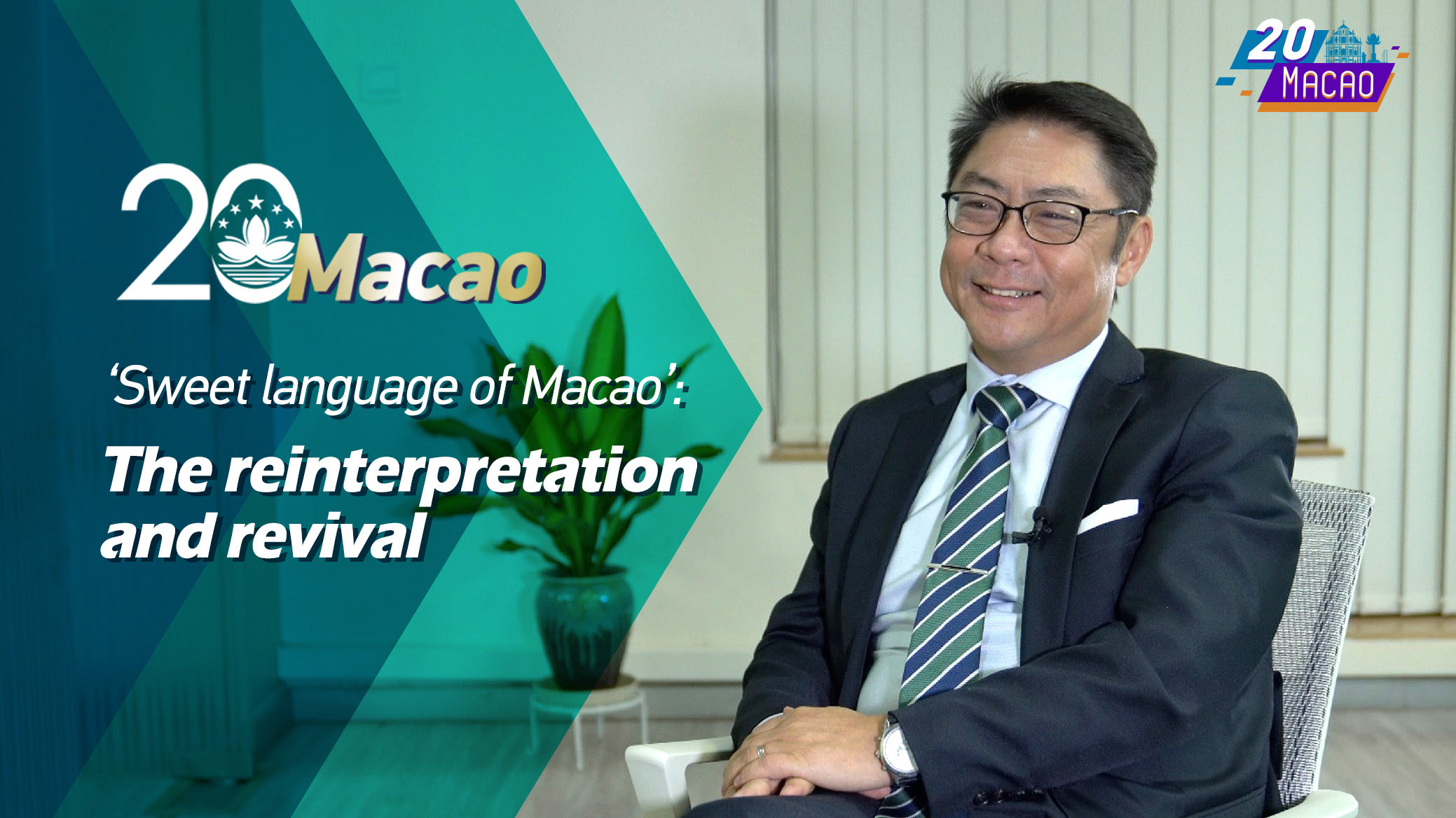03:38

Words are tools that help us understand culture and tradition, and China's Macao Special Administrative Region (SAR) has its very own spoken language – Maquista, or Macanese Patua.
Some may wonder – what's so amazing about it?
CGTN Digital spoke to Miguel de Senna Fernandes, a high-profile Macanese community member, about the origins, status and cultural significance of Macao's unique local language.
To Fernandes, Maquista is the real name of Macanese Patua – it's a Portuguese-based mix dating back to the 16th century, with linguistic elements also derived from Malay, India's Konkani and Spanish. The modern version has been influenced by Cantonese too.
Nowadays few people use the language on a daily basis, and only a small proportion of the younger generation can understand it or have heard about it. Maquista is now classified as one of the World's Languages in Danger on the list of UNESCO's Atlas. "It's in the dangerous status," Fernandes confirmed.
How to revive the language?
Fernandes, who works as a lawyer and notary, is a longtime Maquista proponent and part of a local theater group made up of Macanese members using the language in their performances.
They chose to name their theater group "Doci Papiacam di Macau," which means "Sweet Language of Macao."
Initially his involvement was purely for fun, as he knew nothing about theater or performance art. But with the audiences' positive responses after a successful show, Fernandes realized the importance of bringing back the fading language system and later devoted himself to promoting it in a more serious way.
"We use the language as the memory trigger of the old days, the lost days of Macao." Fernandes said. "I have been writing a play every year since then, for 26 years." In order to keep Maquista alive to a larger number of people, especially the younger generation, Fernandes and the group have also put on performances in the annual Macao Arts Festival regularly in recent years.
Fernandes believes "the stage has the magic of teaching you something," and he's quite happy with the fact that audiences can most likely speak some sentences in Maquista fluently after a show.
Next time you have a chance to visit Macao and savor a piece of egg tart, remember to stop by and watch a show in Maquista – it may help you discover a deeper meaning of the city, its people and its history.
"Through the stage, through this Patua theater, we might trigger an awareness," Fernandes said, "the coexistence of culture, coexistence of everything – this is what we should preserve."
Supervisor: Mei Yan
Project manager: Shan Yuan
Chief editor: Xu Jian
Reporter: Zhang Meng
Video editor: Zhang Meng
Videographers: Xu Jiye, Zhang Wanbao
Editor: John Goodrich
Cover photo: Yu Peng